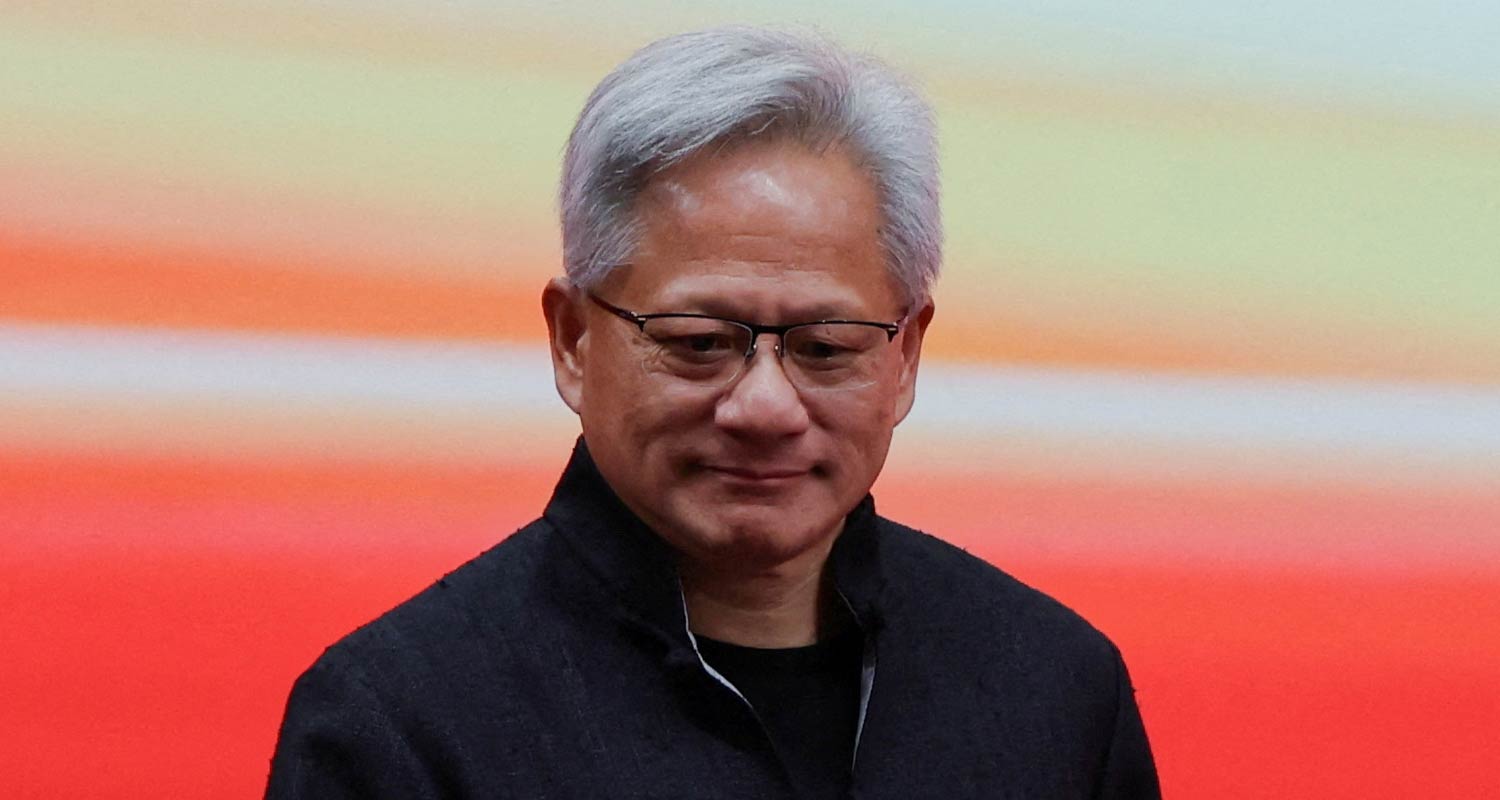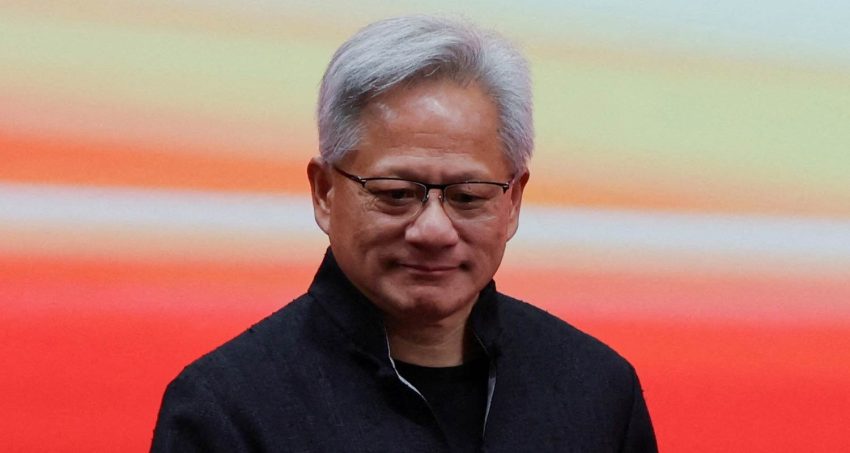
Nvidia CEO Jensen Huang is no stranger to Beijing, but his most recent visit, his third to China this year, cemented his rock star status in the country, where fans mingled freely with the AI titan on the streets of the capital.
It was a rare sight for a CEO of one of the world’s most powerful companies to roam around Beijing, engage in wide-ranging interviews, take selfies with excited fans and even sign leather jackets — a signature clothing item of the billionaire — for his devoted followers.
The tycoon at the helm of the world’s most valuable company arrived in Beijing for a supply chain expo last week just days after meeting US President Donald Trump and announced the AI giant would once again be able to sell its H20 chips in China following a US ban in April on national security concerns.
Huang’s company is caught in the crosshairs of a US-China trade war that threatens to upend supply chains as both countries battle for global dominance in AI and other cutting-edge technologies, threatening Nvidia’s US$17-billion China business.
While Huang appears to be navigating a delicate tightrope between Beijing and Washington well, the company remains subject to the ups and downs of Sino-US tensions, analysts said.
“Jensen Huang’s visit aimed to demonstrate Nvidia’s commitment to the Chinese market,” said Lian Jye Su, a chief analyst at tech research firm Omdia. “However, this commitment must be balanced against potential US government concerns about deepening ties with China.”
Huang described AI models from Chinese firms Deepseek, Alibaba and Tencent as “world class” and his official engagements included a “wonderful” meeting with Chinese trade tsar and vice Premier He Lifeng and a face-to-face with commerce minister Wang Wentao. Demand for H20 chips surged in China following the launch of DeepSeek models in January.
Posing for selfies
“Nvidia will still need to see the tide clearly and ride it at the right time to maximise the available benefits. But good for the company, I think it has a CEO who’s very good at doing that,” said Tilly Zhang, a technology analyst with Gavekal Dragonomics.
Charlie Chai, an analyst with 86Research, said Nvidia’s China market share was likely to slide in years to come.
“The Chinese government will actively help or subsidise domestic rivals that can one day stand up to and, at least in some use cases, replace high-end Nvidia chips.”
Read: AI gold rush propels Nvidia to record $4-trillion market cap
In an unusual sight for a global CEO visiting China, videos posted on social media platforms showed Huang wandering the streets of Beijing, drink in hand, signing notebooks and posing for selfies.
In response to questions about how Washington would likely receive his latest visit to Beijing, the CEO said: “I told President Trump and his cabinet that I was coming to China. Told him about my trip here, and he said, ‘Have a great trip’.”

At the opening of the China International Supply Chain Expo last Wednesday, Huang — who was born in Taiwan but moved to the US at the age of 9 — traded his signature leather jacket for a black, traditional Chinese-style jacket and referred to himself in a speech as “Chinese”.
In his Expo speech, as well as in later comments, Huang was effusive in his praise for Chinese tech giants’ capabilities in bringing technology into applications, describing China’s supply chain as “vast”.
Even arch-rival Huawei Technologies, a firm that Nvidia is locked in a strategic and intensifying battle for AI chip dominance with, was lauded.
Read: Nvidia’s strategic shift aims to cement its role at the core of global AI
“I think the fact of the matter is, anyone who discounts Huawei and anyone who discounts China’s manufacturing capability is deeply naive. This is a formidable company,” Huang told reporters. — Che Pan, Liam Mo and Casey Hall, (c) 2025 Reuters
Get breaking news from TechCentral on WhatsApp. Sign up here.
Don’t miss:
Trump U-turn on Nvidia spurs talk of grand bargain with China

